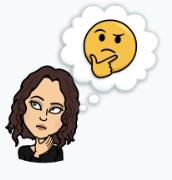

As I was scrolling Facebook, I came across an image that holds a special place in my mind. While the image reminds me of a learning experience that occurred more than twenty years ago, I remember it clearly. This experience, as a member of my intermediate school jazz band, was one of the most impactful periods of my life. I learned lessons during this time that remain with me to this day. I began to wonder, what will our students remember about the learning experiences we design, and what can we learn about memories from our own learning journeys that have stood the test of time, perhaps over decades? While the content areas we teach may differ, the concepts for creating memorable learning experiences are the same. Consider ways that you can build on these overarching concepts in the context of your classroom.
Value Students as Individuals
As a student in Mrs. V’s jazz band, my voice was heard. As an educator, Mrs. V took the time to have individual conversations with students, to offer personalized feedback, to build relationships with the learners she served. And as a student, this made an impact on me. It is affirming to have a teacher who not only provides specific tips as to how to move your performance to a new level, but also takes note of your pop culture interests and asks questions about your hobbies. Mrs. V listened to her students, not merely to the music they made during rehearsals, but to their conversations with their peers as well.
Even as an adult, Mrs. V showed she valued me. She encouraged me. I had the opportunity to substitute teach for Mrs. V before obtaining my teaching credential. A few days afterward, Mrs. V indicated that her students had improved based on the feedback I provided to them during the rehearsal. Just as I had done as a middle school student, I beamed with pride in hearing this compliment. This in turn drove me to continue improving my instructional craft. Feedback matters. And celebrations of achievement build confidence to motivate students to work toward greater success.
Allow Students to Own the Learning Space
My middle school bandroom felt like home. It was not merely a place to learn music theory, hone my craft as a musician, and improve my skills. Being that we were “band geeks” as my peers and I called ourselves, the bandroom was ours. Mr. Hackney and Mrs. V, our directors, allowed us to bring in pictures of performances to put on the walls of their office, they encouraged us to spend time in the bandroom before and after school, and they gave us responsibility for keeping the space orderly. We were always welcome in this learning space.
Believe in Your Students
It could be argued (and it was) that the music Mrs. V selected for our jazz band was above our level, that it was too difficult for middle school students. Mrs. V would openly acknowledge this criticism and then speak of our potential, of our talent, of the fact that with hard work and dedication, we could be better than others believed possible. These high expectations drove each of us individually and collectively.
Every member of the 1994-95 Clark Intermediate Advanced Jazz Band remembers the Santa Cruz Jazz Festival. We had been selected as the top middle school jazz band and were invited to stay and perform again that evening. Our bus was scheduled to leave prior to this opportunity. In the days before any of us had cell phones, Mrs. V helped us to contact parents of band members, arrange carpooling, and ensure that we would each be able to have the honor of performing. As we stood backstage waiting for the top high school band to finish their set, we heard a familiar musical phrase. The high school jazz band was playing one of the exact charts we were planning on performing. As middle school students, we panicked. “What are we going to do???” we asked. “These are high schoolers, they are playing the same tune as us!” Mrs. V was calm. She assured us that not only were we capable of playing a high school level jazz chart, but that we had proven to the judges that we performed it well.
Lessons that Go Beyond Standards
Mrs. V taught beyond music standards. While very few members of my middle school jazz band became professional musicians or pursued music as a career, the learnings from the experience transcended past the content area. As an educator, Mrs. V taught us the importance of improving our individual parts in order to support a collaborative effort. We learned to set goals, to manage our time, to listen to judges’ tapes and reflect upon our performance. Not all of your students will pursue degrees or careers in the content area you teach. But you can go beyond the standards to create memorable lessons. Design learning experiences that sustain past the classroom by validating students and revealing your belief that they can achieve more than they realize.
